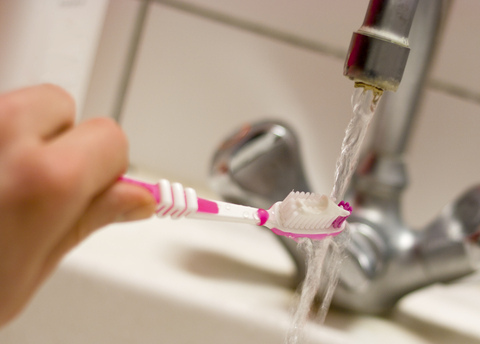The Link Between HPV and Oral Cancer
March 17th, 2017

Cancer has become a common word, and it seems like there is new research about it every day. We know antioxidants are important. We know some cancers are more treatable than others. We know some lifestyles and habits contribute to our cancer risk.
Smoking increases our risk of cancer, as does walking through a radioactive power plant. But there is a direct link to oral cancer that you many may not know about—the link between HPV (Human Papilloma Virus) and oral cancer.
This may come as a shock because it has been almost a taboo subject for some time. A person with HPV is at an extremely high risk of developing oral cancer. In fact, smoking is now second to HPV in causing oral cancer!
According to the Oral Cancer Foundation, “The human papilloma virus, particularly version 16, has now been shown to be sexually transmitted between partners, and is conclusively implicated in the increasing incidence of young non-smoking oral cancer patients. This is the same virus that is the causative agent, along with other versions of the virus, in more than 90% of all cervical cancers. It is the foundation's belief, based on recent revelations in peer reviewed published data in the last few years, that in people under the age of 50, HPV16 may even be replacing tobacco as the primary causative agent in the initiation of the disease process.” [http://www.oralcancerfoundation.org/facts/]
There is a test and a vaccine for HPV; please discuss it with your physician.
There are some devices that help detect oral cancer in its earliest forms. We all know that the survival rate for someone with cancer depends greatly on what stage the cancer is diagnosed. Talk to Dr. Dale Scharine and Dr. Alissa Edwards if you have any concerns.
Please be aware and remember that when it comes to your own health, knowledge is power. When you have the knowledge to make an informed decision, you can make positive changes in your life. The mouth is an entry point for your body. Care for your mouth and it will care for you!




 Website Powered by Sesame 24-7™
Website Powered by Sesame 24-7™